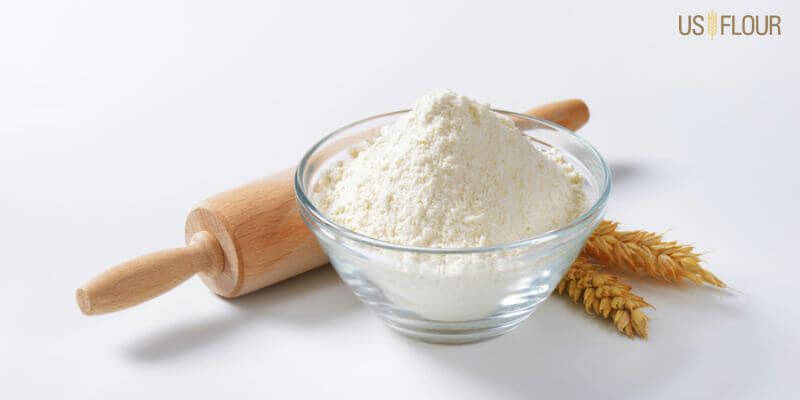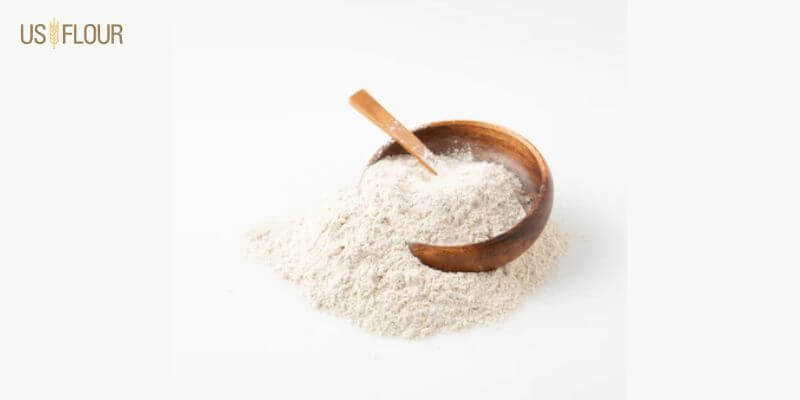Difference Between Non-organic and Organic Flour

To put it mildly, purchasing food in today’s culture may be perplexing. Organic, vegetarian-fed, non-organic, cage-free, non-GMO, all-natural, fair trade and other designations are available. Some labels call for testing, inspections, and certifications, while others do not. Other labels may even be intentionally deceptive on the side of the business selling them, or they may be misleading due to the high expenses associated with getting certified documents. In any case, it may be challenging for consumers to ensure healthy flour for their families. It is a common occurrence when you choose between organic and non-organic food.
Keep reading for analyzing facts and explanations for both of these flours. Let us understand the flours and then differentiate them.
What Is Organic Flour?
Organic flour is famous for making delicious baked products such as pastries, biscuits, and scones. You can also prepare sauces from it. While organic flour is applicable in homes and bakeries, there are numerous doubts about its nutritional profile and the texture of baked items made with organic flour. To dispel these fears, we’ve compiled a list of commonly asked questions concerning organic and non-organic flour in this blog article. Enjoy your reading!
Is Organic Flour Good for You?

Absolutely! Organic flour gets milled from pesticide-free grain. The farmers follow a specific method for the cultivation of organic grains. They use fertile land with high nutrients and no chemicals. Organic flour is neither chemically ripened nor unnaturally processed. Organic grain grows more vigorously. They absorb essential nutrients from the soil to get nourishment. This makes the flour healthier and nutrition-rich for customers.
US Flour’s organic flour gets manufactured from carefully chosen certified organic wheat in the US. For over 30 years, we have advocated for organic farming. Baking using organic flour means you’ve decided to help the environment, protect the environment, and encourage sustainable farming!
Describes the taste of organic flour:
Organic flour, according to some bakers, results in better-tasting baked items. Nobody else can distinguish between them. Before choosing where you stand on this, you’ll need to experiment. Most bakers concur that buying unbleached and unbromated flour is essential for flavor and texture (organic flour is never bleached or bromated; other flours occasionally are and occasionally are not).
Usually, manufacturers add bleach or bromate to the flour to give a better taste. When flour is organically aged, the taste of the grain gets enhanced by prolonged exposure to air.
What distinguishes “Regular” Flour from Organic Flour?
All-purpose or plain flour refers to “normal” flour. While “unbleached” plain flour is available, many of these types of flours are bleached. The germ and bran are removed from flour when it is “bleached.” Additionally, bleached flour is artificially matured by using bleaching chemicals like benzoyl peroxide and chlorine gas, among others, to hasten the aging process of the flour. This technique produces less healthful flour that is whiter, finer-grained, and has a softer texture.
Conversely, organic flour includes preserved amounts of bran and germ, is naturally aged, and without chemical additives, making it substantially healthier than “normal” or “bleached” flour.
Does “Regular” Flour Cost More Than Organic Flour?
Because organic flour is of a higher caliber than other varieties of flour, it is valued at a higher price.
Do different types of flour bake differently from organic flour?
Other than the bitter aftertaste noted earlier, there is no discernible difference between baking using all-purpose flour, organic flour, or varieties of flour; they would all provide comparable results.
What Is Non-Organic Flour/Regular Flour?

Plain flour or all-purpose flour are other names for non-organic flour. It is wheat flour created by mixing low- and high-gluten varieties. It has less protein (11–12%) than flour. It results in less gluten. There are no additional ingredients or additives. Numerous bread items, including cookies, quick bread, biscuits, cakes, and other hard bread, call for all-purpose flour. The flour is the most widely used and a staple in many retail outlets. You can use it to make several bread goods. Additionally, the cost is lower.
Choose The Best Flour Based On Your Preferences.
Whether you want to opt for organic or non-organic flour, is your choice. Ensure that you choose healthy flour for your family.
Summary:
If you are in the search of organic flour, consult US Flour. They are the leading suppliers of bulk flour in the US. You need to provide your requirements to the professional staff. You can reach out to the website and understand more about the flours available at US Flour.
 Power to The Bakers.
Power to The Bakers.